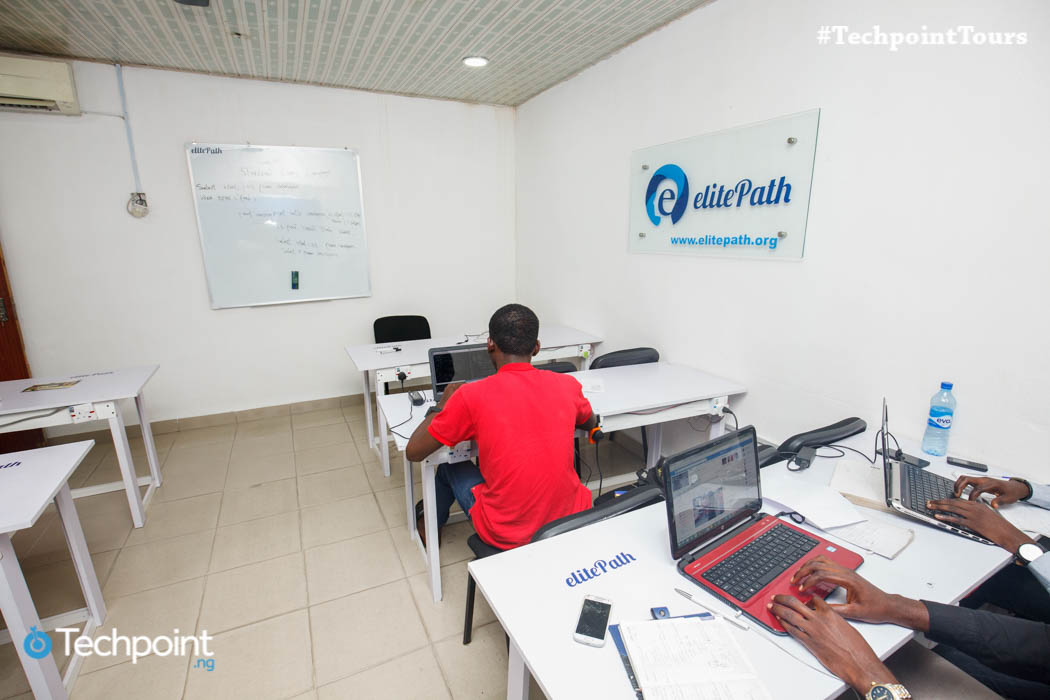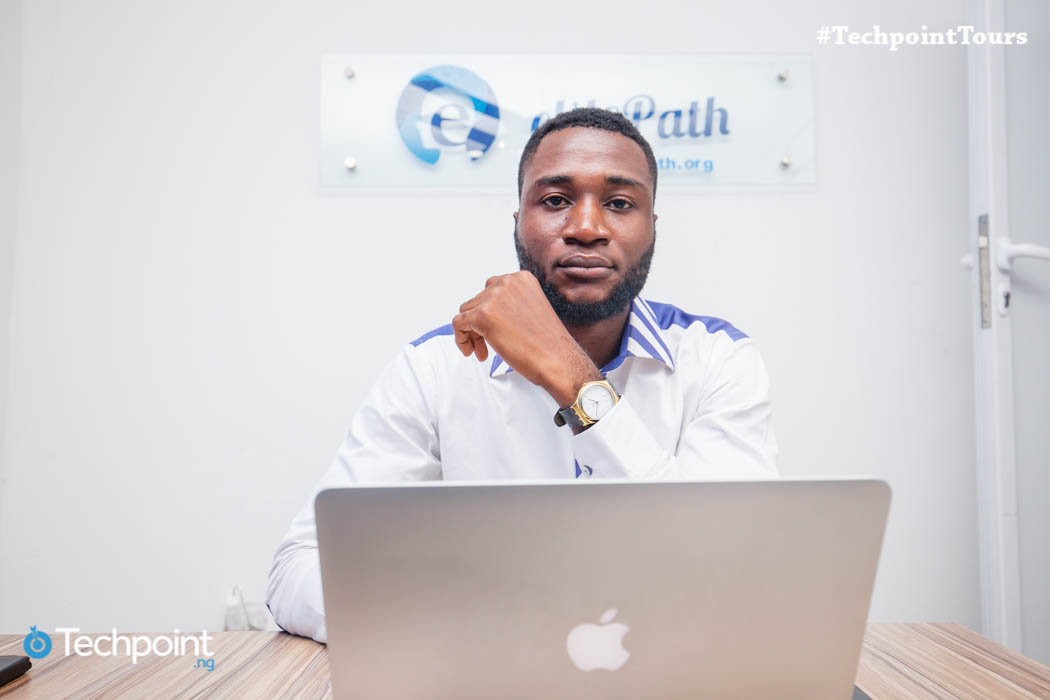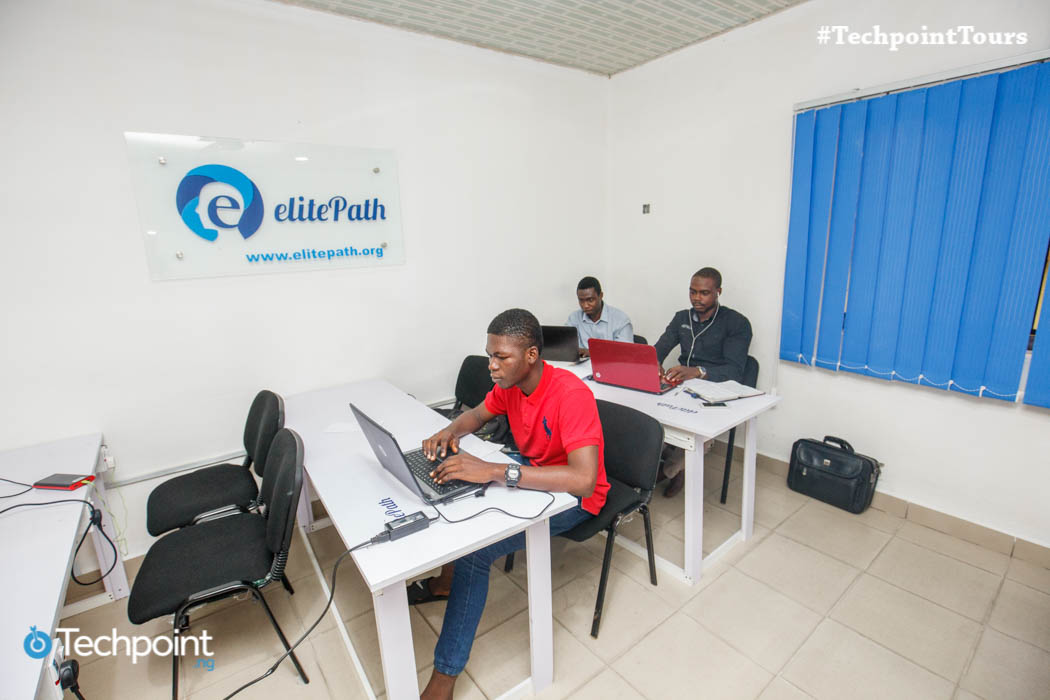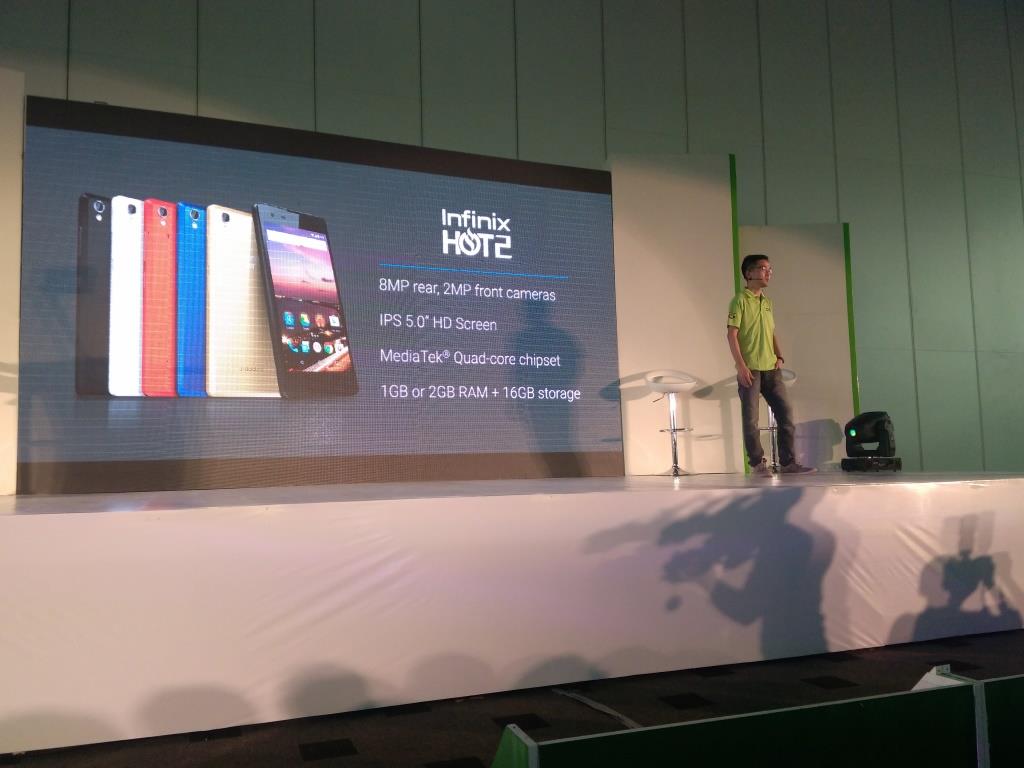If you are a tech enthusiast residing in Lagos, it's probably easy to believe the notion that tech is the new oil. However, in the city of Port Harcourt, you may be forced to have a rethink -- oil is clearly winning the game at the moment.
Yet, after spending a few days in Port Harcourt last month, on the Techpoint Innovation Tour, it was impossible to miss the increased frenzy in the tech community in the area -- some individuals have made a firm resolve to foster the growth of the tech ecosystem in Port Harcourt and their efforts are gradually paying off.
Leo Ata and Ebibote Omobo, the co-founders of elitePath, a software company that trains developers and digital marketers in Port Harcourt, are one of these individuals with a passion to transform the tech scene in the oil city.
Borne purely out of the desire of its founders to create a more active and engaging tech community in Port Harcourt, elitePath is positioned to fill the gap in the technology sector in the city and in Nigeria at large. Leo and Ebibote share their story and prospects for the future in this interesting chat.
Onyinye Uche (OU): What exactly happens in elitePath?
Leo Ata (LA): elitePath is a software company that saw a need and gap in the technology sector in Port Harcourt and decided to bridge the gap by training developers from ground zero to industry standard. Basically, we just give people a roadmap in their software careers. We also offer digital marketing training and build software applications for clients too. We also plan on expanding our portfolio courses as time goes on

We do not have enough developers here in Port Harcourt and the ones we have are not as fully as engaged as they should be. Many developers here work remotely but not outside the shores of the country, and some of them need up to date skills to get these opportunities. That is part of our mission.
For the web development course, we train the students for 12 weeks, and graduates of the course will work with us for another 6 months before we fully deploy them or link them to other companies to work with.
OU: Why did you choose Port Harcourt?

Be the smartest in the room
Give it a try, you can unsubscribe anytime. Privacy Policy.
Ebibote Omobo (EO): I grew up in Port Harcourt and I studied computing, software engineering and web development in Malaysia. I noticed that many IT students that travel there do not want to come back to Nigeria, but I had a different mindset.
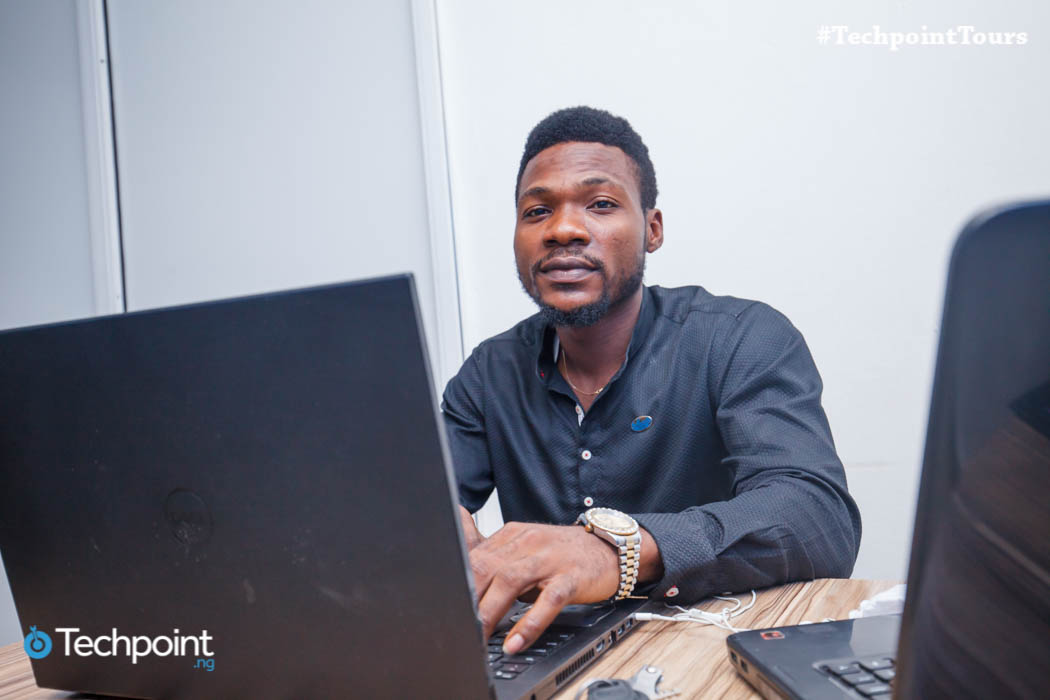
We are lagging behind when it comes to IT in Nigeria. We don't really have developers and the few we have are doing their own personal stuff. Nobody wants to work with the government or do something that will help Nigeria as a whole.
So when I came back in March this year I realised that everything IT is happening in Lagos. I got an opportunity to work in Lagos and Abuja but I declined the offer because I felt that Port Harcourt is also a big city and an open market and if we can put all our efforts into building it, we can actually compete. We feel like the Port Harcourt tech community is not being taken seriously, so we have to stay here.
This is a big city and tech is possible here and we need to echo it, bring people and work with them to see how we can make Port Harcourt tech ecosystem grow.
OU: How did both of you come together to build elitePath?
EO: That is one miracle. When I came back, I had this passion to meet developers in Port Harcourt. I searched online but I didn’t really find people. One day, a girl sent me a message on social media after discovering that I was a programmer from my profile and shared her difficult experience learning programming.
She also mentioned that there was a friend that was helping her and I told her I was interested in meeting him. That was how I connected with Leo on Facebook. After three days, we met at a fast-food joint and we started holding frequent meetings afterward.
OU: So how has building the Port Harcourt tech community been, have you experienced any challenges?
EO: The challenge is to get people out on their feet. Getting people out of their comfort zone cannot be done in a year or two. The whole idea behind elitePath initially was to host an event in Port Harcourt with our own money because of the passion we had for the tech ecosystem. We wanted the event to bring out developers because we didn’t really know a lot of them.
When you do other events here, millions of people turn up, but when it comes to tech events, you can count the attendees. Everybody is doing events but people are not even aware of these things. So when you say “Oil to tech”, they don’t care because they don’t even know what you are talking about.
So during the course of planning and research, we realised that we may not be able to get a lot of people to attend the event. But if we try to build them, teach them how to do these stuff, then the people we have taught can start talking about it and showing their works to others.
So we are looking into grooming people from secondary schools and even universities. We feel it's very effective when you build the younger generation from the grassroots.
So first of all, we need to preach it to people, teach people these things and they too can pass it on. Then when you start organizing tech events, we can bring out massive people. So we are trying to bridge that gap
OU: So what are the requirements to get into elitePath?
LA: We like to go by a very simple model -- if you can read and comprehend, we can teach you to code. I have literally seen people go from zero -- knowing only how to boot the computer -- to writing software applications.
So anybody who is literate, by literate I mean, if you can read, write and comprehend, you can definitely learn how to code because programming is more about how you think and logically applying tech to a solution. You just need to get the right environment, the right drill, the right training and you are on your way to excel.
Students are also required to pay a fee of ₦90,000 which is cool. I know of places that collect well over ₦200k, but Port Harcourt is a new market and we want people to appreciate and have value for what we are doing. So the money is not even relative to the amount of knowledge or innovation pushed out
OU: I still think that some literates may not be suited for a career in programming? So what happens if people like these start the program and find out that they don’t really want to code?
LA: I don’t think anyone’s natural instincts is to instantly love seeing words arranged funny. So it's not the love for how codes look but the ideology behind creating something out of nothing, writing software -- that is what keeps people.
It is very common to get started and give up down the line. Beginners are likely going to encounter technical challenges and nobody likes looking stupid. And it is at that breaking point that you know if you will learn or quit.
But It all boils down to the environment and the people around you -- that is what keeps you moving. Consistency too -- you may not get it instantly the first time but there is nothing you keep doing consistently in the right way that you won't get better at.
EO: Everybody thinks programming is very hard, so we are trying to make it flexible. I learnt it the easy way, and I am trying to use my curriculum and my method of learning these past years to make it easier for people.
OU: Some people predict that salaries of developers may soon plunge because of the increasing number of software developers? Do you agree?
LA: In the laws of economics if supply exceeds demand then price will drop. But in this situation, this is not the case. I once read a study, I think it was carried out in UCLA, which revealed that in the next ten to fifteen years, the number of people graduating with computer science degrees will be around a 100, 000 and the number of jobs for developers will be well over ten times that number. So the IT industry will actually need more developers to ease the workforce.
And we are in a field where your personal development is key -- the desire to keep learning and keep pushing. So what matters is the quality of developers. Just like there are a lot of tailors, event planners, cake designers and makeup artists, yet the best of the best still get the best jobs and the best pay. It's the same thing with developers and the market for developers is not limited to only the shores of Nigeria.
So if Nigerian companies want to pay you very little and you are sure of your skills, you can find a remote job with a company that pays well outside the country.
OU: How is elitePath currently being funded?
EO: From the start to this point, we the co-founders have funded it. We are goal-driven people and we believe that sometimes when you have excess funds you may become too relaxed and miss your goal. So we want to get to a certain extent before we start considering external funding.
OU: What are the prospects for the future?
LA: We are targeting at least 150 developers a year starting from 2018, so we’re looking at 500 in the next 5 years. We want to grow and expand exponentially and bring out the best possible developers that will be valuable in all corners of the globe.
We would also like to make sure that everyone aged 12 and above, living and residing in Port Harcourt will in one or another go through elitePath in their journey through the technology world
EO: We launched elitePath officially in September and the future looks exceedingly bright. We are thinking long term so we are not expecting profit immediately. In Nigeria there are problems everywhere, you either complain or find solutions. Our ideas are channeled towards solving Nigeria’s problem, not just the business aspect.
The developers we train join us immediately and work with us on these long-term projects to achieve it. The only challenge is getting people to train, but we believe that will be sorted out with time. We have developed a strong online presence and we have become technology evangelists.
OU: Can you tell us about some of these future projects?
EO: I chose an online voting system as my final year project in school knowing the flaws in the Nigerian election process. I did it for my SRC elections in school, what we call SUG here, and so I am looking at expanding that project here in Nigeria. That is one project we are currently working on but we are also looking at improving other systems including hospitals and the police force.
We know that everything is politicised in Nigeria and these projects may not be appreciated now, especially since it is coming from a small company. But one day, a government that will embrace IT in Nigeria will emerge.
We just want to keep building these projects and advancing gradually, while we work on other smaller projects that can provide the necessary funds for our future projects. We also intend to work with companies to build APIs that can interact with mobile devices.
The goal is to build something that won't only help our company but the country at large. So we are not very concerned about making profit right now.

